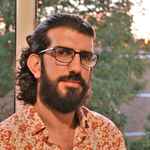NWO Hestia grant to study the EU’s ‘side effects’ on medicines in the Middle East & North Africa
6 April 2023
Could the EU’s internal pharmaceutical regulation help improve access to innovative medicines in the Middle Eastern & North Africa (MENA) region, thereby creating a win-win for EU and MENA patients? That is the question that Katrina Perehudoff and Majd Alshoufi ask in their recently awarded NWO Hestia research project.
This research project takes a ‘law in society’ approach to study the EU’s possible impact on the approval of innovative medicines in the MENA region. The research ultimately aims to understand the factors that influence this EU-MENA relationship.
The Hestia project piggy-backs on Perehudoff’s Veni project ‘Global access to medicines through EU law and policy’ that seeks to unpack the EU’s legal and ethical responsibilities towards access to medicines in developing countries, and to understand the actual impact of the EU’s pharmaceutical policy on making medicines available for patients globally.

‘We want to put the EU-MENA relationship under the microscope at a time when the EU is strengthening its role in global health, and peace, stability, and conflict prevention. In the Hestia project, we will focus on Europe’s potential ripple effects on medicines access in countries receiving EU humanitarian aid (as to Syria) or with EU association agreements (as in North Africa). This project will help answer an important piece of the larger puzzle about the EU’s role in access to medicines in developing countries.’Katrina Perehudoff
Alshoufi holds a Bachelor's degree in Pharmacy (Damascus University, Syria) and a Masters's degree in Public Health (Debrecen University, Hungary). He is currently completing a Master of Health and Environment at Utrecht University. Alshoufi will start this project in September 2023.

‘This Hestia grant brings me one step closer to my ambition of becoming a global health researcher in the Netherlands. It gives me the opportunity to study the effects of global actors, like the European Union, on human health in the Middle East and North African region. The Law Centre for Health and Life is an ideal home for this study because I can combine my background in public health and pharmacy with legal and regulatory approaches.’Majd Alshoufi
A Hestia is an individual research grant from the Netherlands Organisation for Scientific Research (NWO) to give academics, who had to flee their homeland due to war, the chance to join ongoing Dutch research projects so they can expand their network, share and increase their knowledge and skills, and enrich Dutch science and society with their expertise. The Hestia grant will provide Alshoufi, under the supervision of Perehudoff, with 91,000 euro for the project.